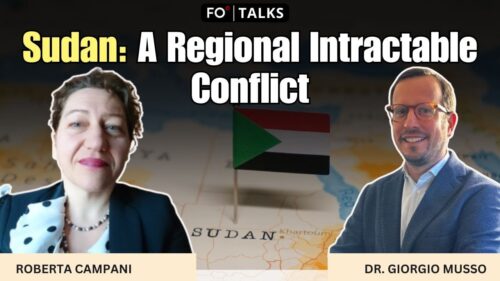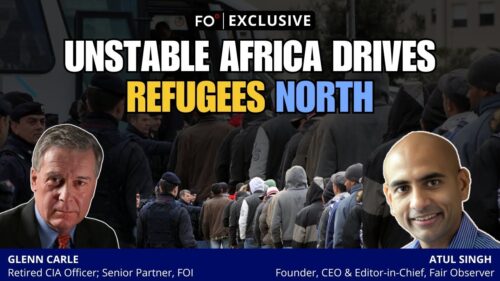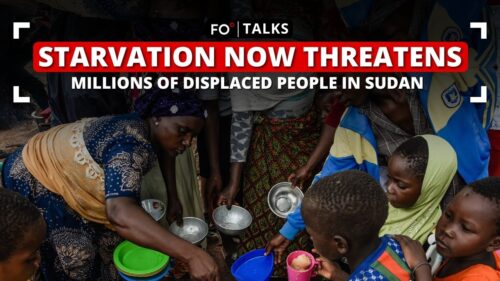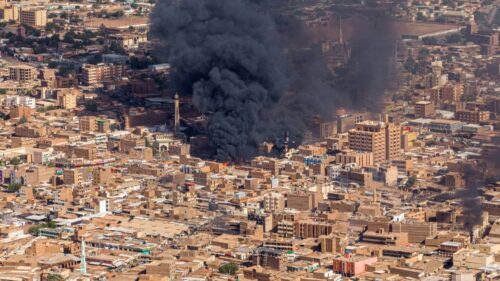War broke out in Sudan in April 2023 between the Sudanese Armed Forces (SAF) and the Rapid Support Forces (RSF), a paramilitary group that was once supported by the army but now competes with it for control. This conflict has received far less attention than those in Gaza, Ukraine, or recent developments in the transatlantic alliance.
As of November 14, 2024, at least 61,000 people have been killed in Khartoum State, with 26,000 of those deaths directly attributed to the violence. The Sudanese Army’s recent push into Khartoum does not mark the end of the conflict, as General Abdel Fattah al-Burhan, head of the army, has shown no interest in peace talks. The army’s actions are also contributing to instability, not only in South Sudan but also in Chad and neighboring countries, further destabilizing an already volatile region.
Over the past year, the UN Human Rights Office has reported numerous attacks by the Sudanese Army, leading to civilian casualties. UN experts have also highlighted disturbing reports of summary executions, particularly of young men.
The international community must step in
The horrendous killings, executions and massacres in Sudan should be reason enough to end the war, but the conflict’s implications go far beyond that. Its intensity has forced millions to flee both within and outside Sudan, overwhelming neighboring countries that are struggling to cope with the influx of refugees. A destabilized Sudan also creates favorable conditions for extremism to rise, potentially dragging neighboring countries such as Ethiopia and Eritrea into the conflict.
Sudan’s instability is providing fertile ground for jihadist groups in the Horn of Africa and the Sahel to establish networks and coordinate operations across porous borders.
The continuation of the war will have consequences for Europe, which is relatively close to the region. The violence in Sudan could obstruct critical maritime passages, disrupting the flow of goods between Europe and Asia, particularly the global maritime oil trade, which would endanger global energy security. The war in Sudan is also important for Europe due to the potential for a humanitarian crisis at its doorstep.
What can Europe do?
In times of great geopolitical turmoil, the EU must recognize that the war in Sudan has profound implications for all its member countries, with powerful actors such as the US, China, and Russia involved. Gaining a foothold and securing peace in Sudan is crucial to the EU’s interests and security. The most immediate consequence of the war’s continuation is likely to be a growing demographic crisis at Europe’s doorstep.
Mobilizing more funds for aid, especially as the United States draws down its international assistance, is crucial to winning hearts and minds. The EU must take its role as a mediator seriously and create a framework for peace talks. Resolving this humanitarian crisis is an absolute necessity. If left unresolved, it could become one of Europe’s greatest security liabilities.
The international community must also expand support for Sudan’s civil society. Strengthening civil society is essential for both ending the war and securing a durable peace. A strong civil society could offer a viable alternative to the warring factions and help guide Sudan toward lasting stability.
The views expressed in this article are the author’s own and do not necessarily reflect Fair Observer’s editorial policy.
Support Fair Observer
We rely on your support for our independence, diversity and quality.
For more than 10 years, Fair Observer has been free, fair and independent. No billionaire owns us, no advertisers control us. We are a reader-supported nonprofit. Unlike many other publications, we keep our content free for readers regardless of where they live or whether they can afford to pay. We have no paywalls and no ads.
In the post-truth era of fake news, echo chambers and filter bubbles, we publish a plurality of perspectives from around the world. Anyone can publish with us, but everyone goes through a rigorous editorial process. So, you get fact-checked, well-reasoned content instead of noise.
We publish 3,000+ voices from 90+ countries. We also conduct education and training programs
on subjects ranging from digital media and journalism to writing and critical thinking. This
doesn’t come cheap. Servers, editors, trainers and web developers cost
money.
Please consider supporting us on a regular basis as a recurring donor or a
sustaining member.
Will you support FO’s journalism?
We rely on your support for our independence, diversity and quality.









Comment